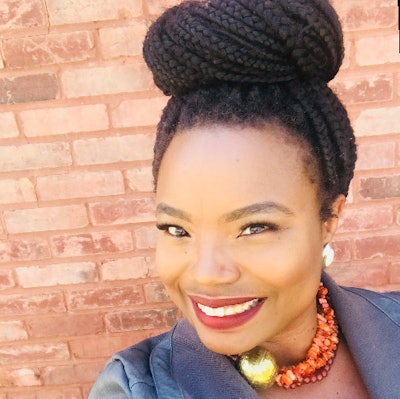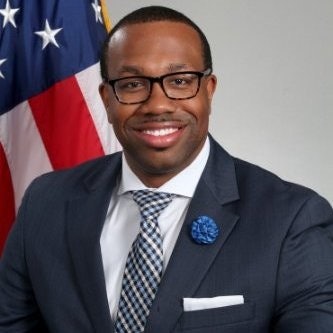Dr. Fallon Wilson watched the events of the Arab Spring occur while she was teaching one of her first courses on technology and sociology at American Baptist College (ABC). As millions of protestors came together to stand against autocratic or corrupt governments, Wilson saw the way participants utilized technology to spread awareness. She began to connect the potential of technology to social justice.
 Dr. Fallon Wilson
Dr. Fallon Wilson
That idea, now canonized in higher education as “public interest technology,” is crucial to the mission of the #BlackTechFutures Research Institution, which Wilson co-founded with Melissa Brown-Sims. As principal investigator, Wilson’s research, housed at HBCU Stillman College and operational in three states, unites local communities by connecting the dots from technology to opportunities, empowering them to change inequitable policies.
“You can’t move forward unless people are fully aligned on the ground in cities driving change,” said Wilson. “Every social movement has this at its core.”
Starting April 25, #BlackTechFutures, in partnership Diverse, is leading #BlackTechPolicyWeek, where panelists from across the nation will discuss ways in which technology can be equitized and how HBCUs, Predominately Black Institutions (PBIs), and community colleges, can be the engines for national change.
“How do we get more Black students into tech? Because racism is such a venerable construct, you have to attack the ecosystem framework and you have to do it all at the same time,” said Wilson. “The truth of the matter is, if a child starts the pipeline where 30% of Black people don’t have the internet or goes to a high school without computer science because that high school can’t afford it, you can’t expect them to go into tech companies or start a tech business. The inequities compound.”
In Birmingham, AL, Nashville and Memphis, TN, and Houston, TX, the four cities currently piloting #BlackTechFutures research, the team assesses the city, identifies leaders and social justice practitioners and "wraps their research around them," said Wilson.
#BlackTechFutures educates those individuals about technology and connects them with their local HBCU, PBI or community college. Wilson said she wants the Black community to understand things like bias algorithms so well “that they can take up the charge with me or walk away knowing the effects of it.”
 Isaac McCoy, dean of Stillman College School of Business.
Isaac McCoy, dean of Stillman College School of Business.
“There is a great popularity among many Predominately White Institutions and Research-1 schools to talk about bias algorithms. Many have created centers where they do interdisciplinary discussion about ethics and computer science, and that’s amazing, that’s needed,” said Wilson. “But there are host of other challenges that Black people have that’s not connected to bias algorithms.”
As an example, Wilson cited telehealth and the growth of a cashless society increasingly relying on things like Cryptocurrency in a world where not every person has access to the internet. She said that #BlackTechFutures keeps the needs of Black and people of color centered by partnering with HBCUs, PBIs, and community colleges whose populations are minoritized or first-generation students.
Isaac McCoy, dean of Stillman’s School of Business and a former senior adviser for business development at the U.S. Department of Commerce’s Minority Business Development Agency under President Obama, said that Wilson’s work has not only moved the needle towards equity but has allowed for technological innovation and research to blossom at Stillman. It’s one of the reasons he and Stillman College President Dr. Cynthia Warrick were both interested in bringing #BlackTechFutures to Stillman, and to do so taking very little percentage of the grant funding the work.
“When you talk about changing the mindset and the narrative, our institutions of higher learning set the tone,” said McCoy. “[HBCUs] can be the thought leaders. The partnership and relationship with Wilson was like, we can incubate it. We’re not just producing Black talent, we’re shaping the policies, resources, structures, and environments in which the talented individuals leaving our campus are going into.”
McCoy said he will attend the Policy Week not only as a panelist but a learner. Wilson said the week will connect viewers with both public interest technology and the hard work of equity being done by HBCUs and Black people.
“We’re not recipients of this new industry, HBCUs are the harbingers,” said Wilson. “We were here, and we will always be here—we’re not the catch-up kids. Black people are the future, and we’re not going anywhere.”
Liann Herder can be reached at [email protected].



















